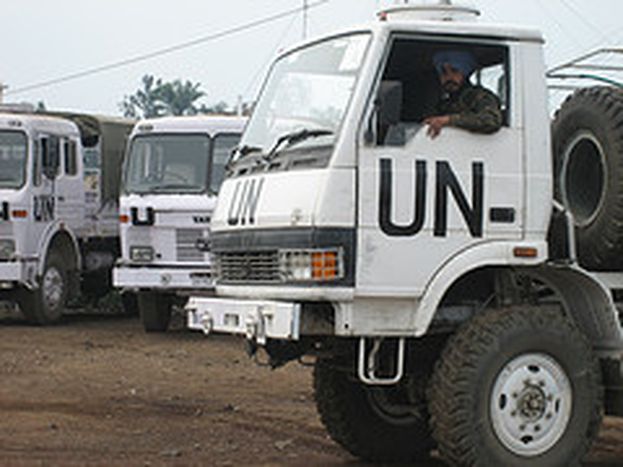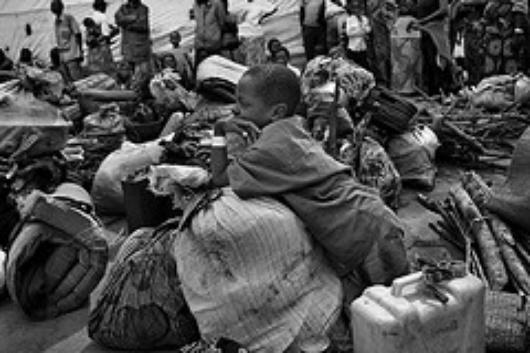
Europe should be doing more to help the DRC
Published on
by Kevin Perry, London, 10 January 2009
Last month, EU foreign ministers made the decision to ignore the call from the UN secretary general, Ban Ki-moon, to send a bridging transition force to the Democratic Republic of Congo until UN reinforcements could be deployed.
(Photo of refugee settlement taken from UNHCR flickrstream)
Called upon to defend the decision, Nicolas Sarkozy, who was EU Chairman at the time, argued that as there are already 17,000 UN troops deployed in the DRC, it was probably not a matter of "numbers", but of "problems in the organisation". On this point he is absolutely correct. MONUC, the UN force in the region, has been blighted by problems including a lack of funding, and have little popular support. This however surely begs the question of why the solution has been to send more Angolan troops to bulk up MONUC. An extra 3,000 troops going into the same organisation will soon be swallowed up. What is needed is a paradigm shift. When the conflict first reached crisis point in October last year, David Miliband’s visit to the country was greeted by a huge sense of local relief – finally the outside world was paying attention. The papers were full of talk of ‘Artemis II’, a reference to the EU’s landmark Operation Artemiswhich successfully stabilized the situation in Bunia in 2003 and enforced the UN’s presence.
That sense of relief has now dissipated. In a recent letter to European leaders, 44 Congolese organizations pleaded for intervention. “We have been abandoned. Who will protect us? Who will help us? ... with each day that passes, more and more people die… we, the civilian population, have been held hostage and caught between many lines of fire… save our lives now; otherwise it will be too late.”
The EU was one of the major backers for the $500 million investment that the international community made to support the democratic elections in 2006, the country’s first for 46 years, but that investment risks being wasted if the country is further destabilized by the ongoing violence in the east and left to slide into chaos. Only Europe can deploy a strong and neutral force fast enough to halt the terror.
Jean-Marie Guehenno, the UN's ex-peacekeeping chief, believes that European “elite soldiers” should have been sent. “That would have a big deterrent effect. Because the troops, they really play two roles: they have their operational role but they also are a political signal. And if the Europeans showed that they are ready to go, that would be a very powerful signal.” He added “When you think of what happened during the election where there was a very small, very, very small European deployment in Congo, but it had a huge psychological impact because there was that sense that the rest of the world was watching. That deterrent effect was enormous.”
 (Photo: tleef/Flickr)
(Photo: tleef/Flickr)
Guehenno is not the only UN official who was disappointed by the failure for Europe to step in. Jan Egeland, the former UN emergency relief co-ordinator, has called the situation in the DRC world'sworst humanitarian disaster. “Everybody speaks about the biggest UN force in the world in the Congo. There are 17,000 people there - one fourth of the Western force in Afghanistan with a tenth of the equipment in a much bigger place.” He continued “The response is inadequate and Europe has to show that it was no joke when Europe solemnly swore in the UN General Assembly that there was a responsibility to protect and there should be no more Rwandas.”
The spectre of Rwanda looms large over the current Congolese conflict. Gordon Brown said in 2007, “It is to the shame of the whole world that the international community failed to act to prevent genocide in Rwanda. We now rightly recognize our responsibility to protect behind borders where there are crimes against humanity.” This is the case in Congo now. This is why Europe must act.



